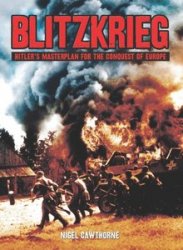Our meeting here in the Crimea has reaffirmed our common determination
to maintain and strengthen in the peace to come that unity of purpose and
of action which has made victory possible and certain for the United Nations
in this war. We believe that this is a sacred obligation which our Governments owe to
our peoples and to all the peoples of the world.1
With these ringing words, drafted at the Yalta Conference in February 1945, President
Franklin D. Roosevelt, Generalissimo Joseph Stalin, and Prime MinisterWinston
Churchill affirmed their common hope that the Grand Alliance, which had brought
their countries to victory in World War II, could be sustained in the postwar era.
Only through the continuing and growing cooperation and understanding among the
three victorious allies, the statement asserted, could a secure and lasting peace be realized
that, in the words of the Atlantic Charter, would “afford assurance that all the
men in all the lands may live out their lives in freedom from fear and want.”
Roosevelt hoped that the decisions reached at Yalta would provide the basis for
a stable peace in the postwar era. Allied occupation forces—American, British,
and French in the west and Soviet in the east—were to bring about the end of Axis
administration and the holding of free elections to form democratic governments
throughout Europe. To foster an attitude of mutual trust and an end to the suspicions
that had marked relations between the capitalist world and the Soviet Union prior to
World War II, Roosevelt tried to reassure Stalin that Moscow’s legitimate territorial
aspirations and genuine security needs would be adequately met in a durable peace
settlement.
It was not to be. Within months after the German surrender, the attitude of mutual
trust among the victorious allies—if it had ever existed—rapidly disintegrated,
and the dream of a stable peace was replaced
by the specter of a nuclear holocaust. As the
Cold War conflict between Moscow and Washington
intensified, Europe was divided into two
armed camps, and the two superpowers, glaring
at each other across a deep ideological divide,
held the survival of the entire world in their
hands.
|
|
||||||||
|
Www.WorldHistory.Biz
Sundries
 Contact Contact
|
 
10-08-2015, 17:12
IN THE GRIP OF THE COLD WAR: THE BREAKDOWN OF THE YALTA SYSTEM
  |
|||||||
 |
 |
 |
 |
|||||
|
||||||||

 World History
World History





